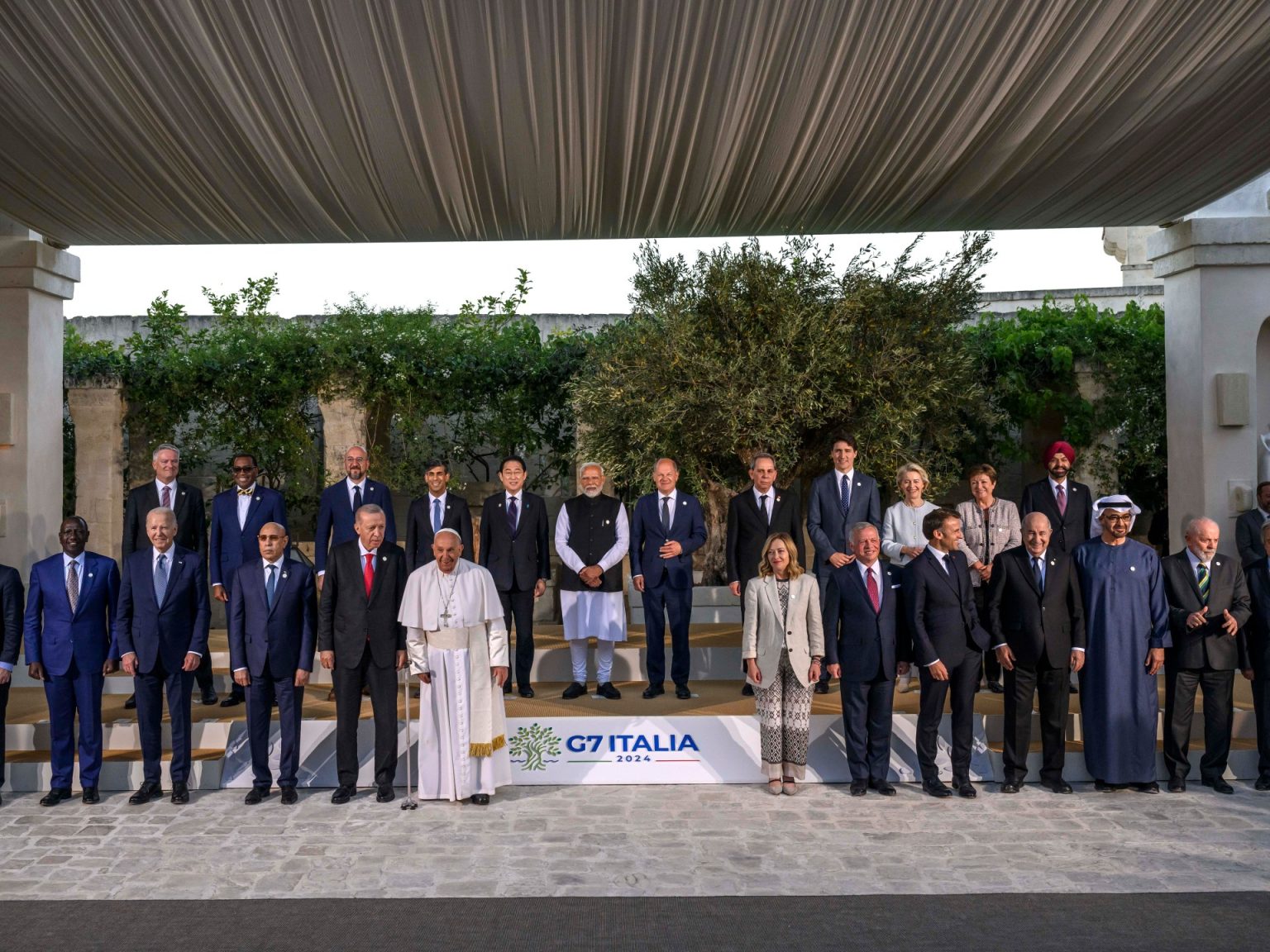The recent G7 summit held in Fasano, Italy showcased a group of leaders facing domestic challenges, but still managing to present a united front when it came to addressing key global issues. Despite facing criticism and political turmoil at home, leaders from countries such as France, Germany, the United Kingdom, Canada, and Japan were able to come together to tackle threats to Western interests. The upcoming United States presidential election, with the possibility of a return for Donald Trump, added another layer of complexity to the discussions at the summit.
One of the key outcomes of the summit was a strong message of unity in addressing issues such as the ongoing conflict in Ukraine and the growing economic competition from China. The G7 leaders announced a $50bn loan to Ukraine, drawing on frozen Russian assets, to support the country’s efforts in the war with Russia. They also expressed concerns about China’s industrial practices and market distortions, leading to tariffs being imposed by both the European Union and the United States on Chinese electric vehicles. These actions demonstrated a clear convergence among the G7 members on key issues.
However, the G7 was not entirely united on all fronts, particularly when it came to the issue of abortion. This year’s final communique did not mention the word “abortion,” a departure from the previous year’s statement that called for access to safe and legal abortion. This shift reflected the influence of conservative parties within the G7, highlighting the internal differences among member countries on certain social issues. Despite these differences, the G7 leaders were able to maintain a unified front on broader geopolitical challenges.
The G7 also sought to shed its elitist image and become more inclusive by inviting leaders from countries outside the group, such as India, Turkey, Brazil, and the United Arab Emirates. This move was aimed at expanding the reach and influence of the club, which has been criticized for being too Western-centric. However, questions remain about the group’s relevance and attractiveness to outsiders, especially as other global groups gain prominence. The shifting global power dynamics and protectionist policies of the G7 members have raised concerns about the group’s ability to effectively address world problems.
The war in Gaza highlighted the G7’s challenges in maintaining a united front on sensitive international issues. While the group supported a ceasefire plan outlined by US President Joe Biden and stressed the need for a two-state solution, including the recognition of a Palestinian state, it stopped short of condemning Israel for its actions in Gaza. This stance has drawn criticism from other countries and raised questions about the G7’s credibility and moral authority on issues of international conflict. Moving forward, the G7 faces the ongoing challenge of balancing its Western-centric interests with the need to engage with a rapidly changing global landscape.












